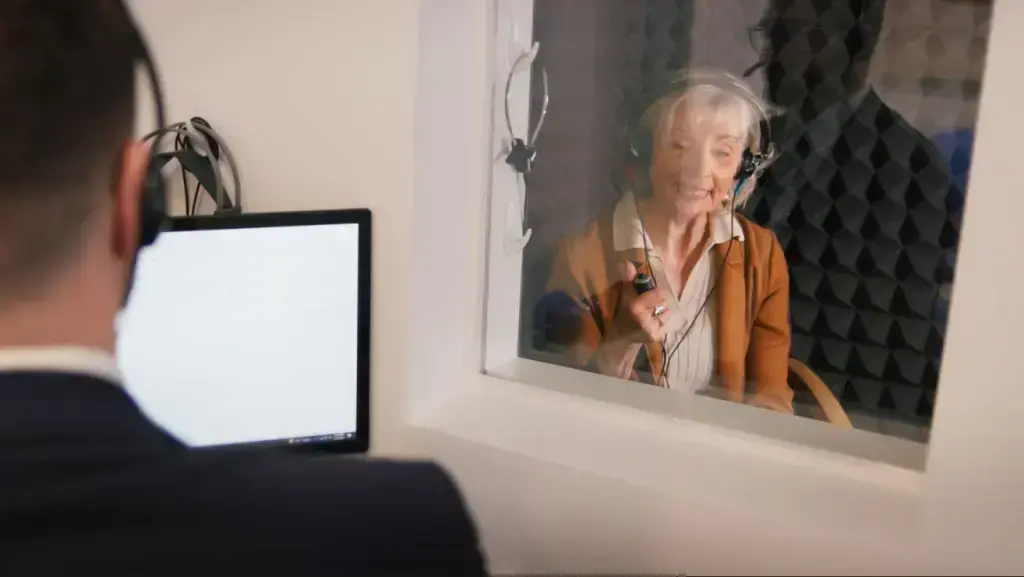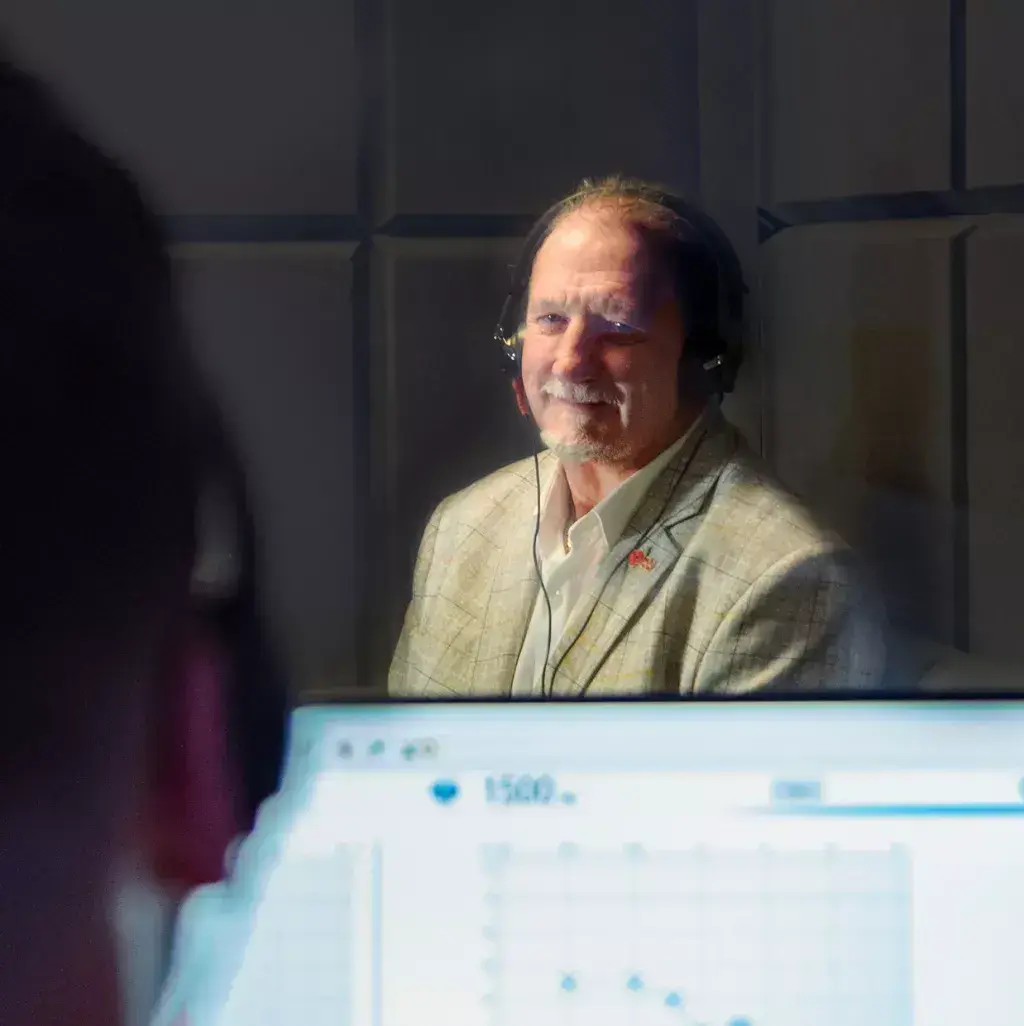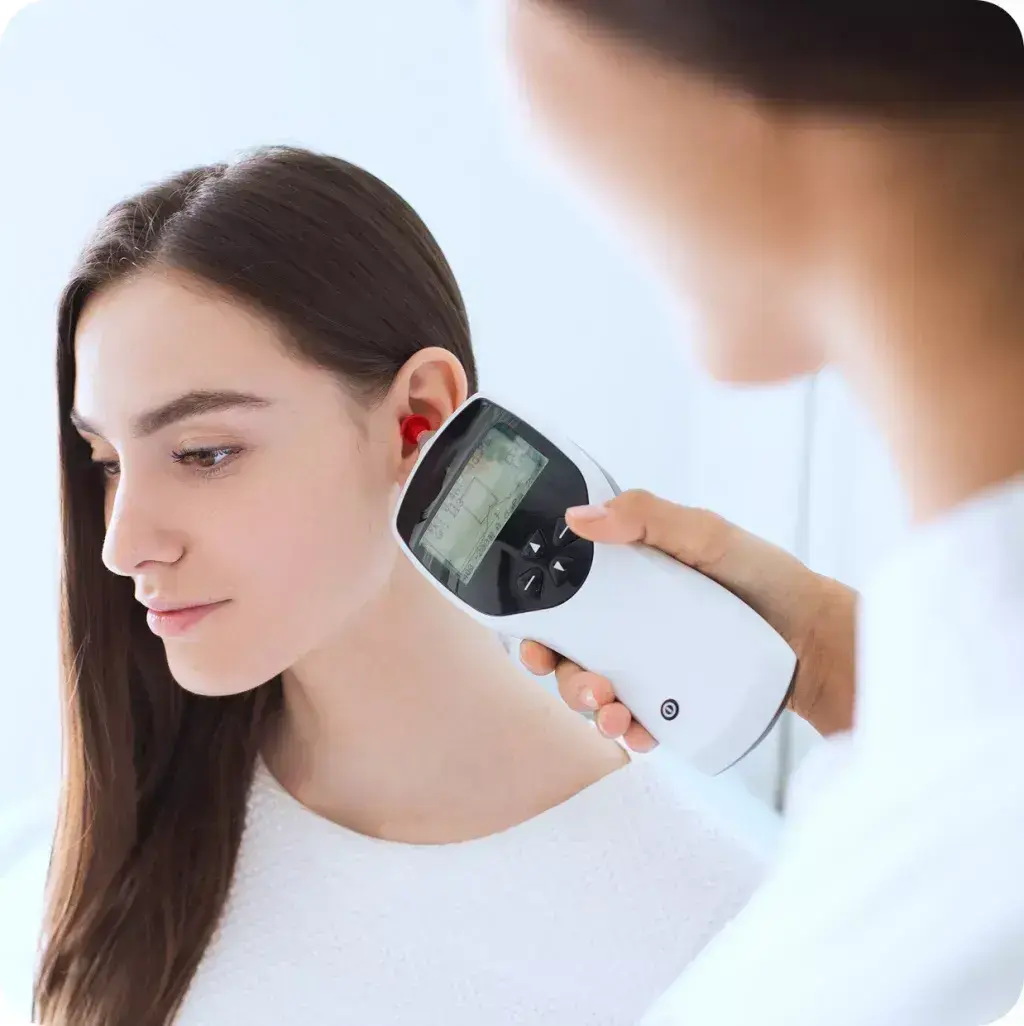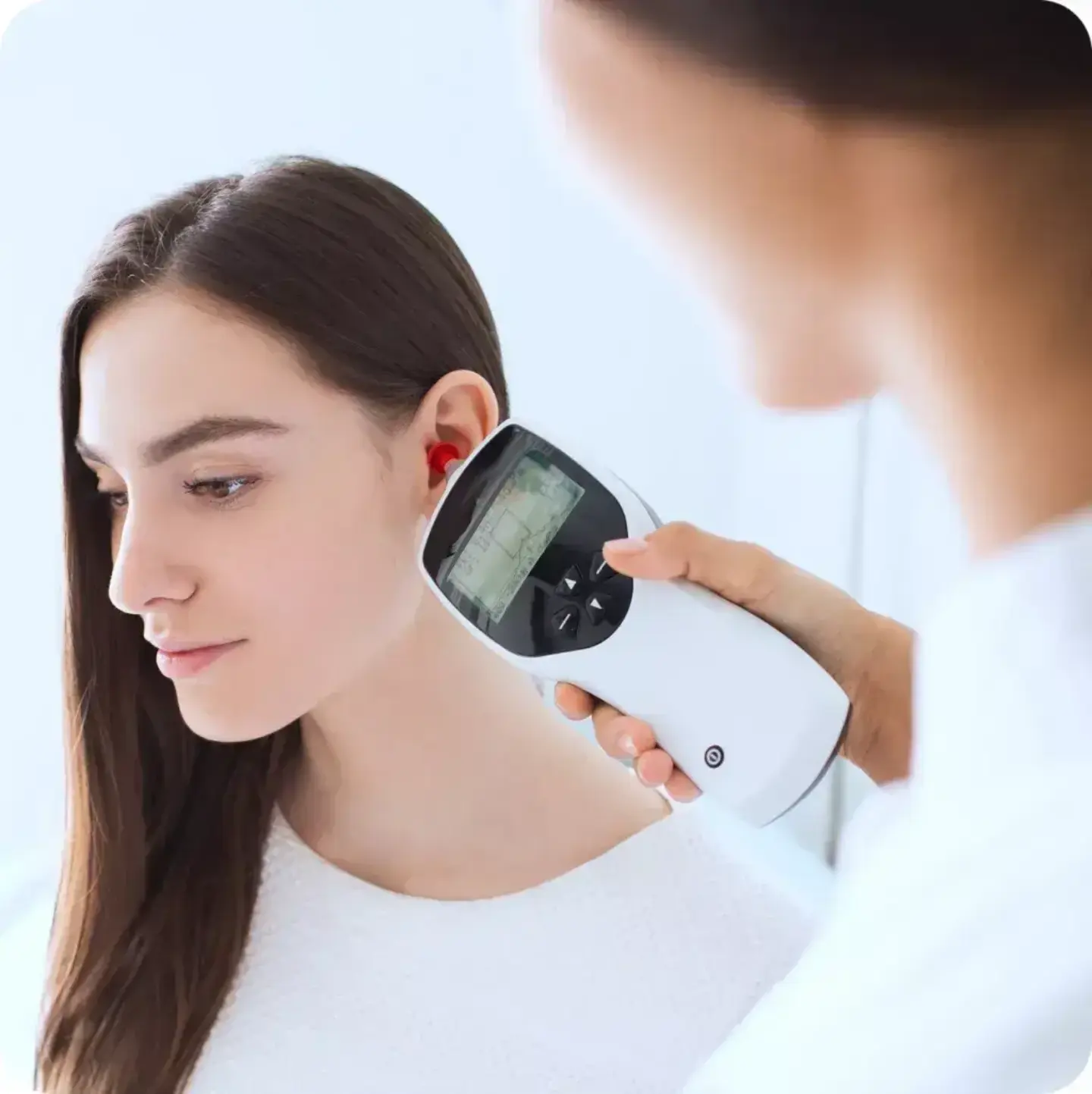Take the first step to better hearing with specialist testing
Discover the right hearing treatment for you with our comprehensive hearing test.
Discover the right hearing treatment for you with our comprehensive hearing test.

The hearing test is simple and comfortable. Our specialists explain everything clearly, ensuring you feel supported.

Your appointment will take approximately 1.5 hours.

In-depth diagnostic testing.

Hearing solutions tailored just for you.
Before the hearing test our specialists will explain everything clearly, ensuring you feel supported.

You’ll listen through headphones and wear a bone conduction vibrator attached to a headband. Listen for the softest level of pure tones you can detect. Push a button/raise your hand in response. This determines your hearing thresholds.

Performed in both quiet and noisy situations; words will be presented through headphones and you will have to repeat them. This can help diagnose nerve damage/deterioration. These assess the impact your hearing loss has on your understanding of speech sounds.

An ear tip is placed in your ear canal; the tip is connected to a machine that briefly varies the pressure. The movement of the eardrum is measured. It also looks for any congestion behind the eardrum. This reveals abnormalities that could explain hearing loss/pressure in your ear.

Your results will be viewed together with the audiologist. They will then discuss any recommendations for you to improve your hearing. If you are a suitable candidate for hearing aids, we will then move on to a hearing aid benefit scheme.




Hear from our valued patients and see the impact of a customised hearing solution.

Join Merleen on her inspiring journey to better hearing.
2 min watch

Discover Lucy’s journey to clearer, more confident hearing.
2 min watch

Follow Jane’s journey to clearer hearing and renewed confidence.
2 min watch